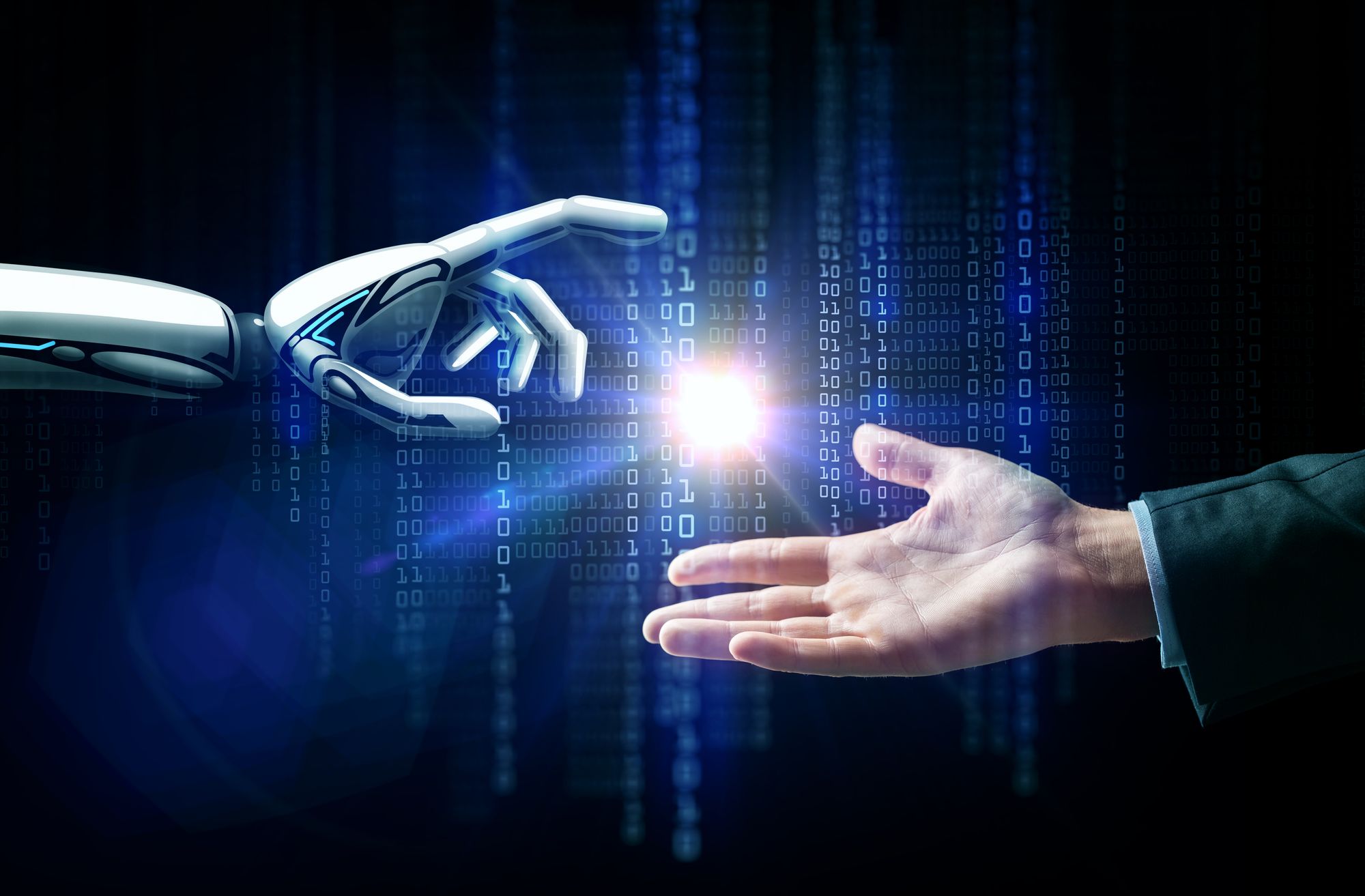What is DX? Its Four Core Technologies
Elice
9/23/2022

In addition to rapidly changing industrial technology, lifestyle changes from COVID-19 are showing businesses the need to continue adapting to the new era. Companies need to drive this digital transformation in a multitude of areas in this new normal.
Digital transformation, DX, means transformation by applying digital technology in various fields. Today, we will learn more about the meaning of DX and its top four core technologies.
What is DX?
The Meaning of DX
DX is short for digital transformation, which means innovating and transforming traditional social structures by applying digital technology overall to different business elements.
DX stands for “transformation,” so it is not just technological innovation in a limited area, but innovation that takes place extensively throughout corporate management. It is characterized by a large range of changes, including corporate strategies, products, organization and culture, working methods, goals, and programs.
DX Necessity
Digital transformation (DX) is necessary due to how fast business can change. Companies that have successfully implemented DX integrate their internal data with new technologies, enabling them to make meaningful decisions based on data-driven problem-solving. Companies must efficiently undergo digital transformation in various areas such as organizational culture, business processes, and communication to survive in the digital age.
As such, companies that recognize the need for DX are increasingly paying attention to in-house training. However, companies face challenges in providing this education amid tight work schedules and practical tasks. The digital education practical platform, Elice, is designed to address these needs of companies. It provides education content directly applicable to practical work scenarios, allowing employees to apply what they learn in real-world situations. In the course titled “Exploring Digital Transformation Through 2022 Cases” on Elice, various industries such as manufacturing/IoT, e-commerce, web/app development, and finance provide practical training that aligns with current trends. Participants can directly apply the skills learned to these diverse industry sectors.
DX Development Process
Step 1: Digital Infrastructure Deployment Phase
The first phase was the launch of digital products and the establishment of infrastructure foundations starting from the late 1990s to the early 2000s. With the introduction of the Internet, analog information began to be digitally converted through PC-centered infrastructure.
Step 2: Digital Business Drive
The second stage was the creation of e-commerce and the establishment of digital business strategies from the early 2000s to early 2010. As a step toward streamlining the work process, we promoted a digital business strategy based online.
Step 3: Digital Transformation
The third step was the digital transformation (DX) phase of business models and management strategies starting in 2010. This stage involves integrating new technologies such as big data, artificial intelligence, cloud computing, blockchain, and others into infrastructures and systems. It includes combining products and services or inventing new services, leading to business innovation.
Core DX Technology
Which technologies are considered essential in the realm of digital transformation, or DX? Let’s go through the vital technologies involved in DX, such as big data, artificial intelligence, the cloud, and blockchains.
Big Data
Big data refers to the extremely valuable meaning found by discovering and utilizing meaningful results from a large amount of diverse data. Big data not only includes structured data like numbers but also unstructured data such as audio data, deriving results that aid in decision-making.
Big data technology plays a very important role in DX technology. This is because analyzing and understanding customer behavior and psychology through data allows companies to find their direction and business models.
The value found through big data can directly generate your company’s revenue, so the role of big data is expected to grow even further in the future.
Artificial Intelligence
Artificial intelligence refers to the imitation and implementation of human learning, memory, perception, and reasoning abilities through computers. Computers equipped with artificial intelligence (AI) can learn and make decisions autonomously, enabling automation in various business operations.
In banks, AI is utilized to conduct loan assessments, and in electronic companies, AI directly inspects the quality of display devices for defects.
AI has become more sophisticated than before, expanding beyond the realms of human intelligence and continuously evolving without limits. The potential for advancement in AI is limitless, and its role is expected to grow even further in the future.
Do you want to bring artificial intelligence into your company’s practice? - Find out with Elice
The Cloud
The cloud is a DX technology that involves storing data on servers in internet-based storage space, rather than on individual computers or local storage devices. There are three main categories of the cloud. LaaS, which allows infrastructure to be used in a virtual environment, PaaS, which uses the platform in the cloud, and SaaS, which is a cloud-based software concept.
The best aspect of the cloud is that there are no physical constraints on storage space, allowing users to access the necessary services from anywhere via an internet connection and login. Additionally, businesses can utilize the server infrastructure already built in the cloud at a relatively low cost without the need to create their own data centers.
The cloud is essential for using complex and extensive big data technology and AI. The cloud is expected to become even more important in the future to facilitate the use of multiple DX technologies.
Blockchain
Blockchain is technology that distributes and processes data in multiple locations, rather than collecting data in one place. Blockchain technology has the advantage of being secure against hacking and protecting personal information because transaction records are stored on numerous different devices.
Blockchain technology, which was initially limited to cryptocurrencies, is gradually expanding its scope and being utilized in various transactions and payment systems. Blockchain technology increases transparency in processes and allows for cost reduction by eliminating fees through direct transactions without central authorities.
Blockchain, leveraging its advantages of reliability and transparency, is expected to be introduced into various business processes in the future, enhancing the credibility of operations.
So far, we’ve examined the definition and fundamental principles of DX and conducted an in-depth exploration of the four core DX technologies: big data, AI, cloud, and blockchain.
For companies looking to swiftly progress in this new era of the industrial revolution, it’s essential to provide employees with enhanced DX skills through education. Embark on a successful digital transformation journey with Elice.
*This content is a work protected by copyright law and is copyrighted by Elice.
*The content is prohibited from secondary processing and commercial use without prior consent.
- #DX
- #insight






